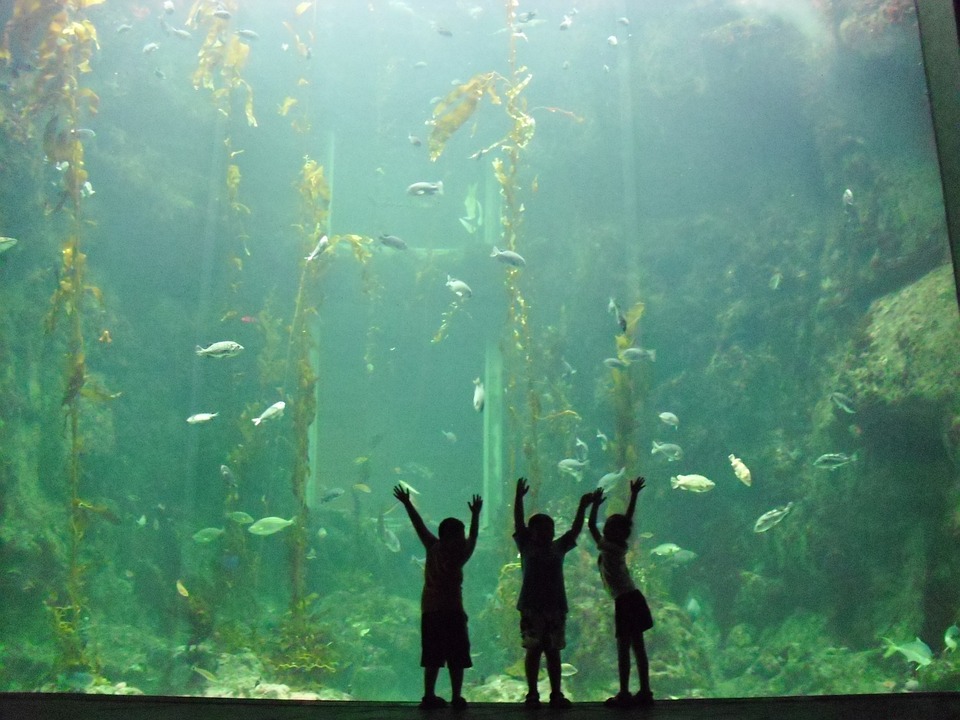In the ever-changing world of aquatic environments, fish have proven themselves to be remarkably adaptable creatures. They have evolved unique behaviors that allow them to thrive in various conditions. However, with increasing environmental changes caused by factors such as climate change and human activities, it becomes crucial to understand how fish behavior responds to these changes.
One prevalent behavior among fish species is schooling. Fish form schools to increase their chances of survival in a changing environment. By swimming closely together, fish create a large, dynamic group that confuses predators, making it harder for them to focus on an individual target. Additionally, schooling allows fish to synchronize their movements and respond collectively to environmental cues, such as changes in water currents or the presence of food sources.
Migration is another important behavior exhibited by various fish species. Fish undertake long-distance journeys to find suitable breeding grounds, locate food sources, or escape unfavorable conditions. These migrations often occur seasonally and can span hundreds or even thousands of kilometers. Remarkably, fish can navigate using various cues, including the Earth’s magnetic field, celestial bodies, and even their sense of smell.
Fish have diverse feeding strategies, allowing them to adapt to changing food availability in their environment. Some fish species are opportunistic feeders, taking advantage of any available food source, while others are specialized feeders, relying on specific prey items. When faced with scarcity or changes in their usual food sources, fish may alter their feeding behavior, including shifting to alternative prey or changing their foraging locations.
Reproductive behavior in fish is often closely tied to environmental cues. Many species rely on seasonal changes, such as temperature or day length, to trigger their reproductive cycles. These cues ensure that fish reproduce when environmental conditions are most favorable for the survival of their offspring. However, rising water temperatures and altered seasonal patterns due to climate change can disrupt these cues, potentially affecting fish reproductive success.
Climate change poses significant challenges for fish behavior and their ability to adapt. Increasing water temperatures, ocean acidification, and altered rainfall patterns can impact fish behavior in numerous ways. For example, some fish species may move to higher latitudes or deeper waters to find their optimal temperature range. Additionally, changes in water chemistry can affect the availability and distribution of prey species, leading to shifts in feeding behavior.
Pollution and habitat destruction caused by human activities can have detrimental effects on fish behavior. Pollution, such as chemicals or excessive nutrients entering aquatic ecosystems, can disrupt fish sensory systems, impairing their ability to navigate, find food, or avoid predators. Habitat destruction, including the loss of essential spawning or nursery grounds, can disrupt fish migration patterns and limit their reproductive success.
Fish behavior can exhibit both rapid and gradual changes in response to environmental changes. Some species can quickly adjust their behavior to immediate threats or changes in their surroundings, while others may take longer to adapt or rely on evolutionary changes over generations.
Fish have well-developed sensory systems that allow them to detect changes in their environment. They rely on senses such as vision, hearing, smell, and lateral line systems, which detect changes in water movement and pressure.
Fish species vary in their adaptability to environmental changes. Some species have broader ecological niches and can tolerate a range of conditions, while others are highly specialized and may struggle to cope with even slight environmental changes.
Human activities can positively influence fish behavior and their ability to adapt. Conservation efforts that focus on protecting and restoring habitats, reducing pollution, and implementing sustainable fishing practices can help maintain healthy fish populations and provide them with a better chance of adapting to changing environments.
In conclusion, fish behavior is a fascinating field of study that sheds light on how these remarkable creatures adapt to a changing environment. By understanding the various behaviors fish exhibit, we can better appreciate their ability to navigate and survive in the face of environmental challenges. As we continue to witness environmental changes, it is crucial to prioritize conservation efforts and minimize human impacts to ensure the long-term survival and well-being of fish species around the world.









